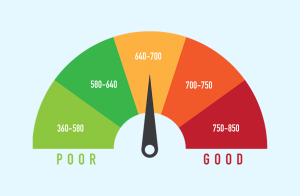What is an Insurance Score?
Learn what an insurance score is, how it's calculated, and why it matters. Discover tips to improve your score and lower your insurance premiums

An insurance score is a numerical representation used by insurance companies to assess the risk level of a potential policyholder. Unlike credit scores, which are primarily used to evaluate an individual’s creditworthiness, insurance scores are specifically designed to predict the likelihood of a policyholder filing a claim.
Understanding your insurance score is crucial because it directly impacts the premiums you pay for various types of insurance, such as auto and home insurance.
What is an Insurance Score?
An insurance score is a three-digit number derived from various factors that help insurers gauge the risk associated with insuring a person. It’s essential to note that an insurance score is different from a credit score, although there are some overlapping elements in their calculations. Insurance scores are primarily used to predict the probability of an insurance claim being filed, rather than assessing financial responsibility.
How is an Insurance Score Calculated?
Insurance scores are calculated using data from your credit report, but they also include other factors. Here are some of the critical elements that go into determining your insurance score:
- Payment History: Timely payments on loans and credit cards can positively influence your insurance score.
- Outstanding Debt: The amount of debt you have compared to your available credit limits can impact your score.
- Credit History Length: A longer credit history can benefit your insurance score.
- Types of Credit: Having a mix of different types of credit accounts, such as credit cards, mortgages, and auto loans, can be favorable.
- New Credit Inquiries: Frequent applications for new credit can negatively affect your score.
Insurance companies use proprietary algorithms to weigh these factors and generate your insurance score. Each insurer may place different emphasis on these elements, leading to variations in scores across companies.
Why Do Insurance Scores Matter?
Insurance scores matter because they directly influence the premiums you pay for insurance policies. Here’s how:
- Lower Premiums for Higher Scores: Individuals with higher insurance scores are considered lower risk, leading to lower insurance premiums.
- Higher Premiums for Lower Scores: Conversely, those with lower insurance scores are seen as higher risk, resulting in higher premiums.
For example, if you have a high insurance score, you might receive a more favorable rate on your auto insurance compared to someone with a lower score. Insurers believe that individuals with higher scores are less likely to file claims, thus posing a lower risk.
Improving Your Insurance Score
Maintaining a good insurance score can lead to significant savings on your insurance premiums. Here are some tips to help improve your score:
- Pay Bills on Time: Consistent, timely payments can positively impact your insurance score.
- Reduce Outstanding Debt: Try to pay down your debt to lower the amount you owe relative to your credit limits.
- Limit New Credit Applications: Avoid opening multiple new credit accounts in a short period.
- Check Your Credit Report: Regularly review your credit report for errors and dispute any inaccuracies.
By following these steps, you can improve your insurance score over time, leading to better insurance rates and overall financial health.
Insurance Score Myths and Facts
There are several myths surrounding insurance scores. Let’s debunk some of the most common ones:
- Myth: Insurance scores are the same as credit scores.
- Fact: While they share some similarities, insurance scores are specifically designed to predict insurance risk, not creditworthiness.
- Myth: Checking your insurance score will hurt it.
- Fact: Checking your own insurance score is considered a soft inquiry and does not impact your score.
- Myth: Only bad drivers have low insurance scores.
- Fact: Insurance scores are influenced by financial behavior, not driving habits.
Understanding these myths and facts can help you better manage your insurance score and make informed decisions about your insurance policies.
How to Check Your Insurance Score
Knowing your insurance score is vital for understanding your insurance premiums and identifying areas for improvement. Here’s how you can check your insurance score:
- Request from Your Insurance Company: Some insurers provide your insurance score upon request or as part of your policy documentation.
- Use Third-Party Services: Several online services offer insurance score checks, often for a fee. For more information, you can visit The Zebra.
- Credit Bureaus: Some credit bureaus provide insurance scores as part of their credit monitoring services. Check out Equifax for more details.
It’s essential to check your insurance score periodically to stay informed and take proactive steps to maintain or improve it.
Insurance Score vs. Credit Score
While insurance scores and credit scores may seem similar, they serve different purposes and are calculated differently:
- Credit Score: Primarily used by lenders to evaluate the risk of lending money to an individual. It considers payment history, amounts owed, length of credit history, types of credit, and new credit inquiries.
- Insurance Score: Used by insurers to assess the risk of insuring an individual. It focuses on factors that predict the likelihood of filing an insurance claim.
Understanding the differences between these two scores can help you manage both effectively and take advantage of the benefits they offer.
Conclusion
In summary, an insurance score is a crucial factor that influences your insurance premiums. By understanding how it’s calculated and taking steps to improve it, you can secure better insurance rates and enhance your overall financial health. Regularly check your insurance score and stay informed about the factors that impact it to make the most of your insurance policies.




